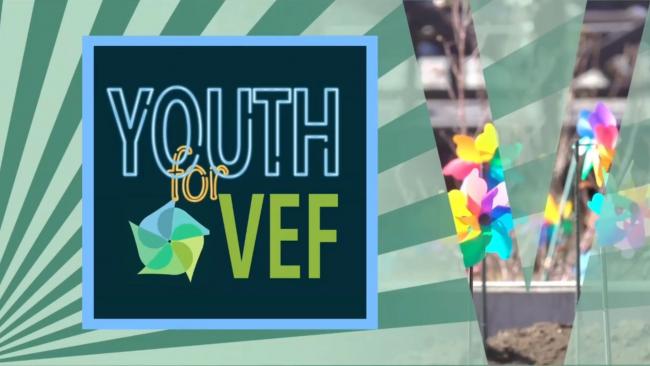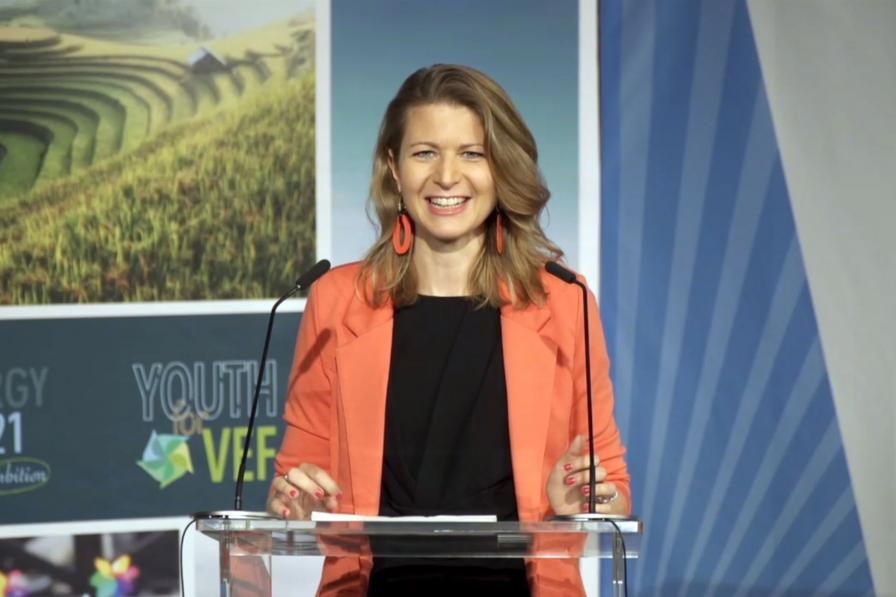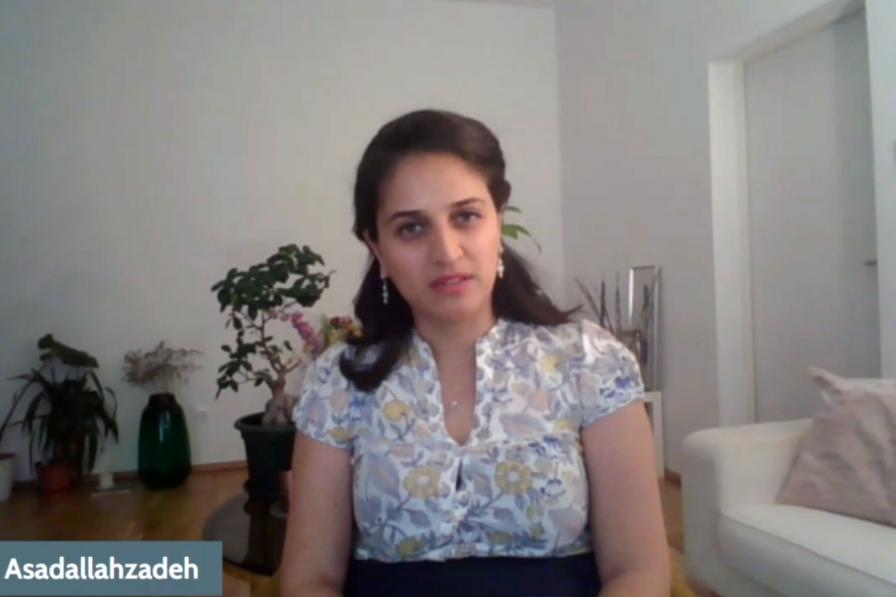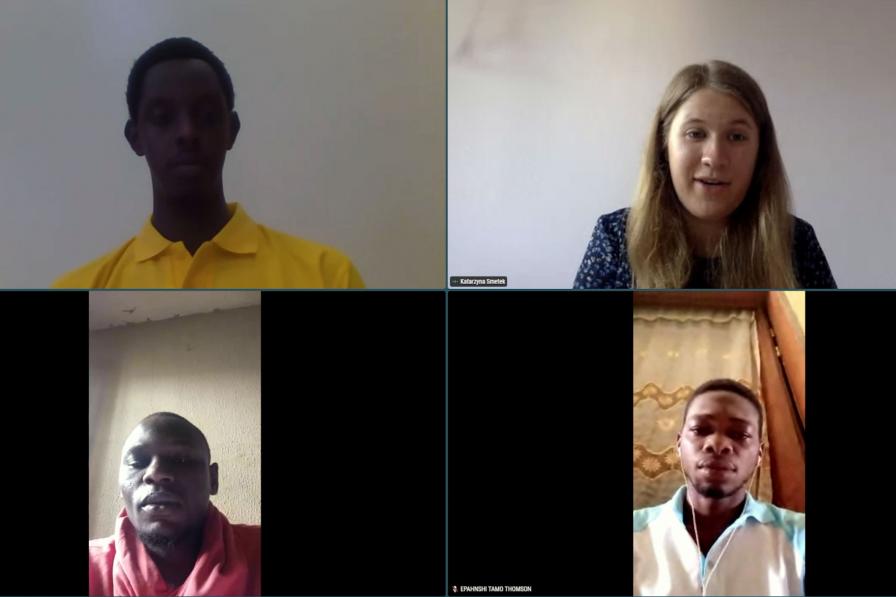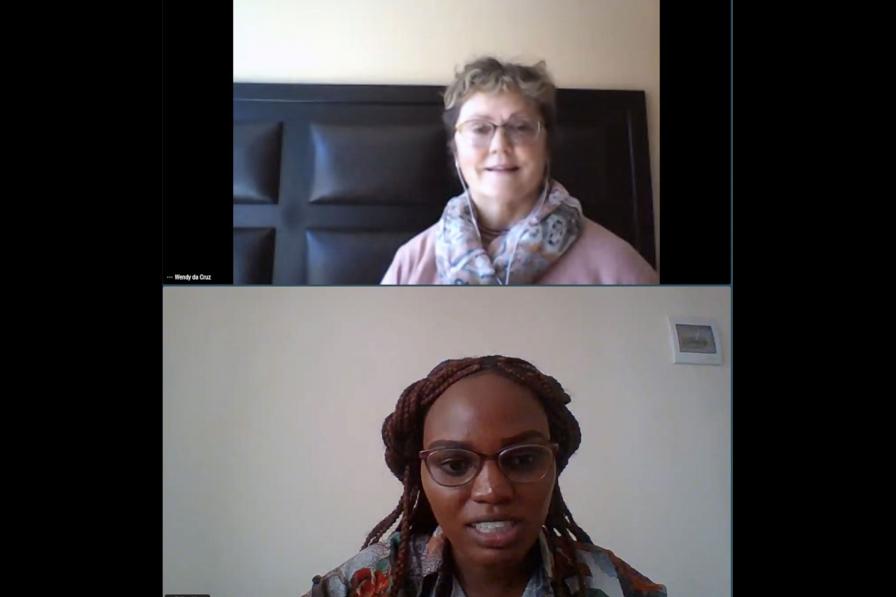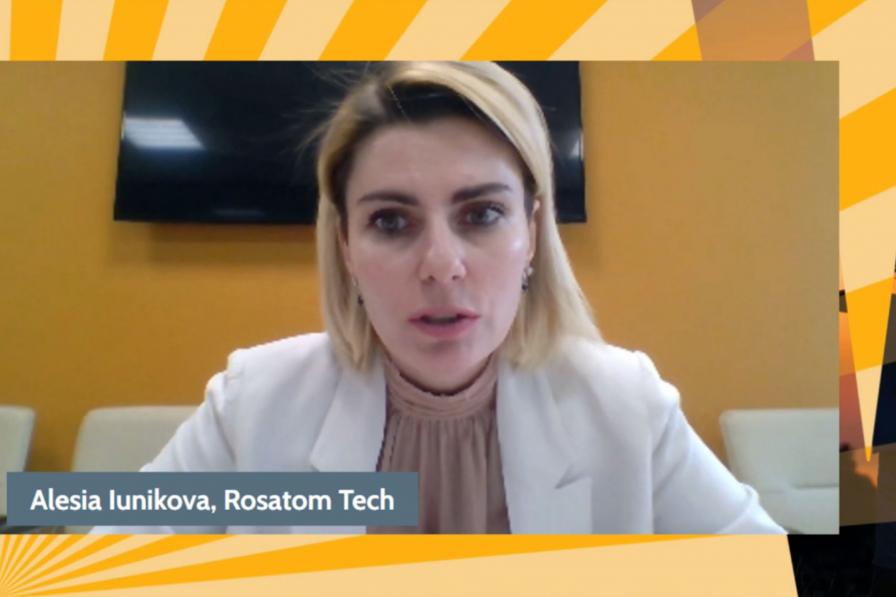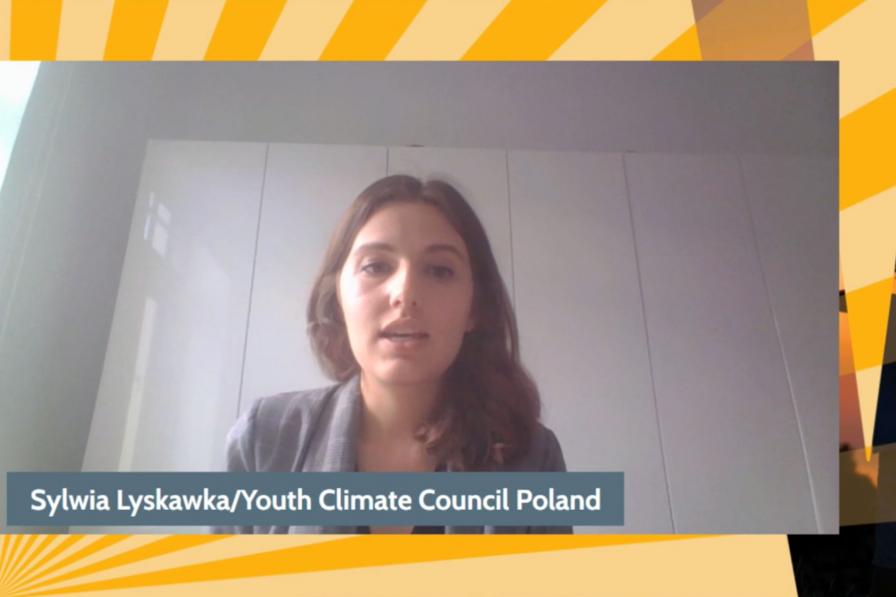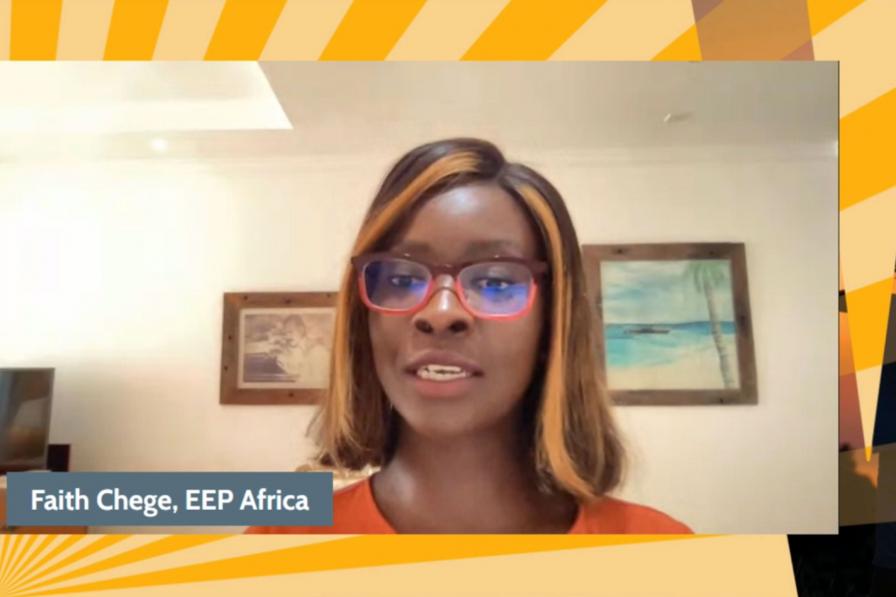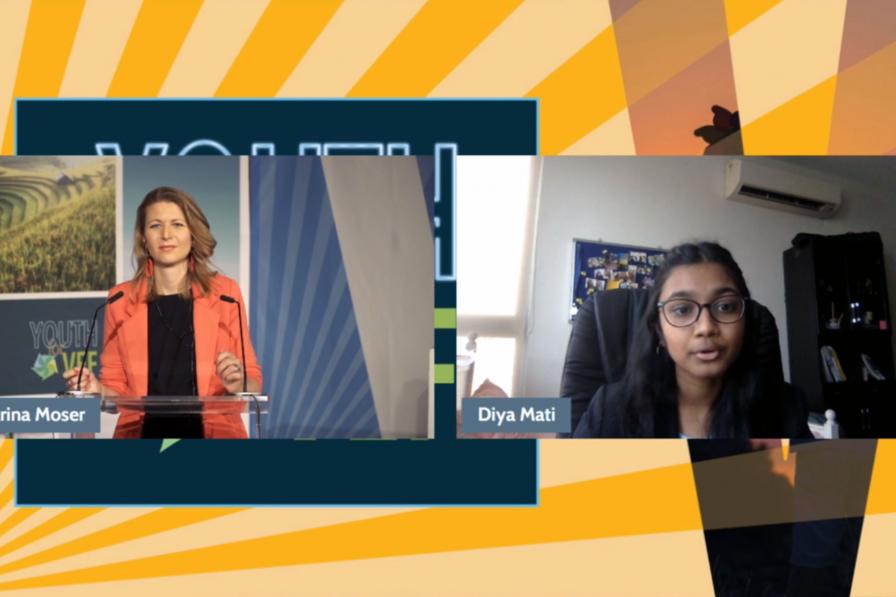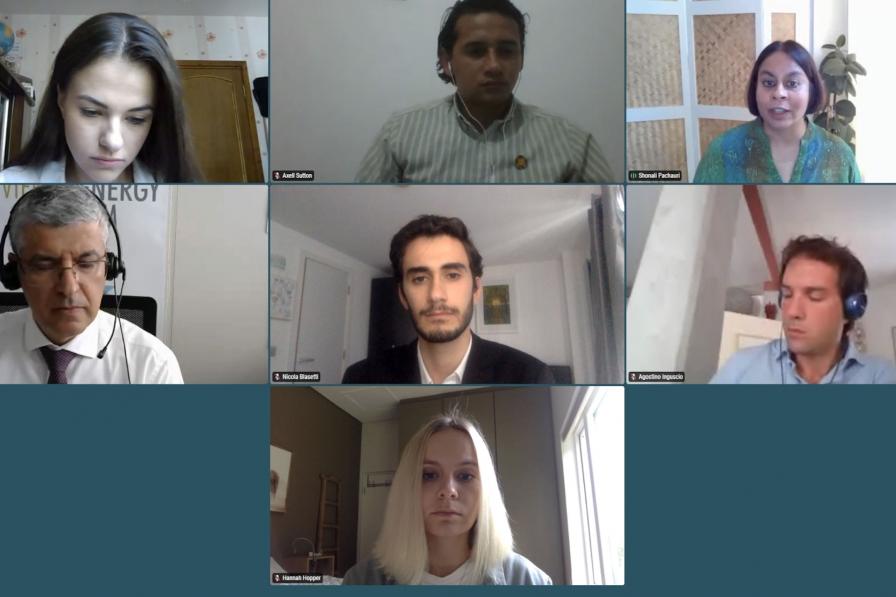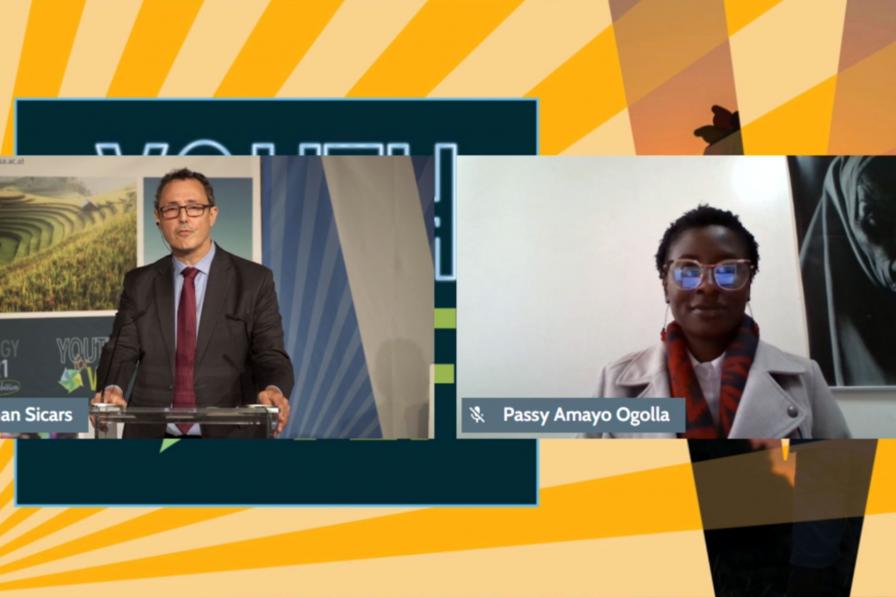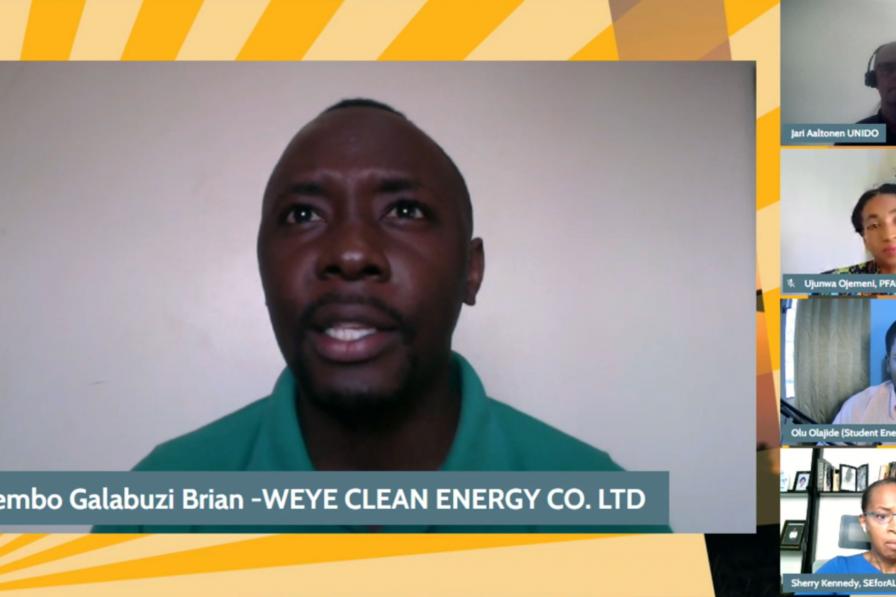Vienna Energy Forum 2021 features a first-ever Youth Forum (Youth for VEF) co-hosted with the SDG 7 Youth Constituency (SDG7YC), held in an online format on Monday, 5 July 2021. Youth for VEF focused on three linked plenary sessions, including:
- a thematic session on “future proof skills,” which addressed how best to ensure that youth get the skills needed to join the energy transition workforce;
- a thematic session on “enabling environment,” which discussed how to align legislation, policies, programmes, and projects to address the needs of young women and men involved in the energy transition; and
- a ministerial segment featuring exchanges between youth and government representatives on what initiatives and policies best promote youth engagement in the energy transition, and how governments can support the development of skills and provide enabling environments for youth in energy sector.
The day's events also included: a variety of side events; guided virtual tours of projects in biomass, biofuel, electric mobility, and solar and wind energy; a quiz to test participants on their knowledge of SDG 7 on affordable, reliable, sustainable and modern energy for all by 2030; an interactive session where youth could dialogue with energy experts; and three workshops on youth advocacy for the energy transition, issues related to youth in the energy space, and best practice and case studies in energy efficiency policy.
Future Proof Skills
This panel, moderated by David Arinze, Diamond Development Initiatives, featured discussions among representatives of youth, academia, industry, and civil society regarding: existing gaps in current education curricula necessary to prepare youth to enter the transitioning energy sector; what entry-level positions are and will be available in the sector; and what type of re-skilling is needed for a just energy transition. Special attention was given to gender dimensions in these areas.
Among the ideas suggested by panelists were:
- greater transparency and global cooperation about the job skills needed for the transition, including repair and maintenance skills for newer technologies, and where entry level opportunities actually are;
- assessing the re-skilling needed in each country to provide for a just transition from traditional energy sources to renewables;
- taking extra steps to get women involved in transitional energy segments, including as entrepreneurs selling clean energy systems to other women; and
- more hands-on industry internships and fellowships that can lead to permanent jobs in the industry.
Youth and Policymaker Debate
The Ministerial Segment, co-moderated by Stephan Sicars, UN Industrial Development Organization (UNIDO), and Passy Amayo Ogolla, SDG7YC, featured two youth representatives and two government representatives from Austria and the Dominican Republic. The youth representatives called for youth participation in governance structures on climate change and energy transition so they can have a say in public policy making instead of just being observers. They also highlighted that paid internships on climate change and energy issues expand opportunities for youth. Government representatives called on youth to become more involved in existing spaces, including public hearings and direct interaction with policymakers. However, they acknowledged the need for changes in existing governance structures to provide more opportunities for youth input.
Enabling Environment
This panel, moderated by Olubunmi Olajide, Student Energy and Founder and Host, The Energy Talk podcast, featured representatives from Sustainable Energy for All (SEforALL), the financing sector, an African energy start-up, and a UNIDO-supported Barbados national project supporting clean energy startups. Panelists agreed on the imperative of bringing women and youth into the discussion on energy transition, since together they represent over half the world’s population.
Panelists also discussed ideas such as:
- government contracts requiring companies to involve women;
- clean energy project incubators;
- creating a supportive broader ecosystem bringing together collaborators from governments, the private sector, and universities;
- young entrepreneurs using existing networks such as Student Energy to build their credentials with potential financial supporters;
- teaching youth and women skills, such as project design, viability and commercial potential assessment, communication, and marketing; and
- having a gender champion to focus on promoting greater inclusion of women in energy projects.
Images from the Meeting
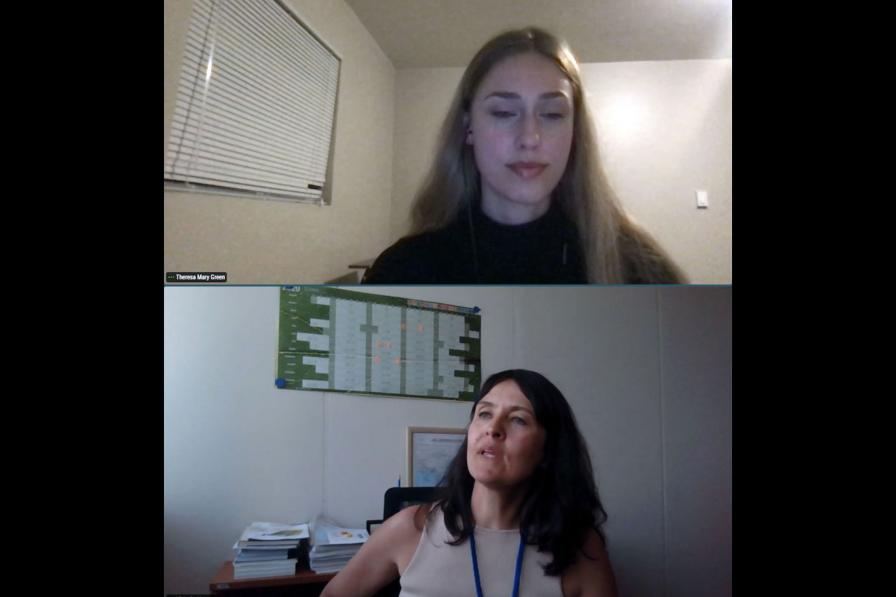
Theresa Mary Green, International Youth Nuclear Congress, with Victoria Alexeeva, Energy Economist, International Atomic Energy Agency
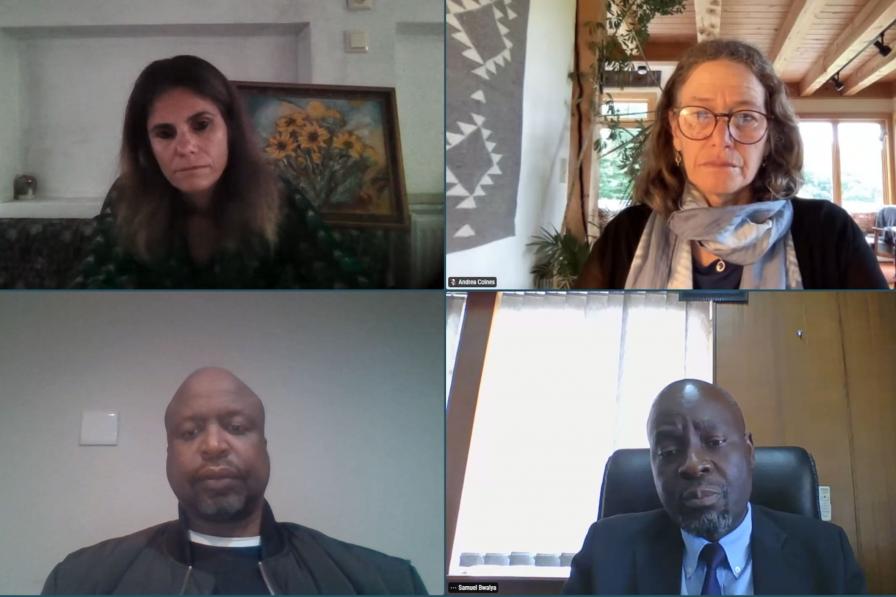
Participants during the "Green Banks: Scaling Up Investments in Clean Energy and Energy Access in Developing Countries" Side Event
